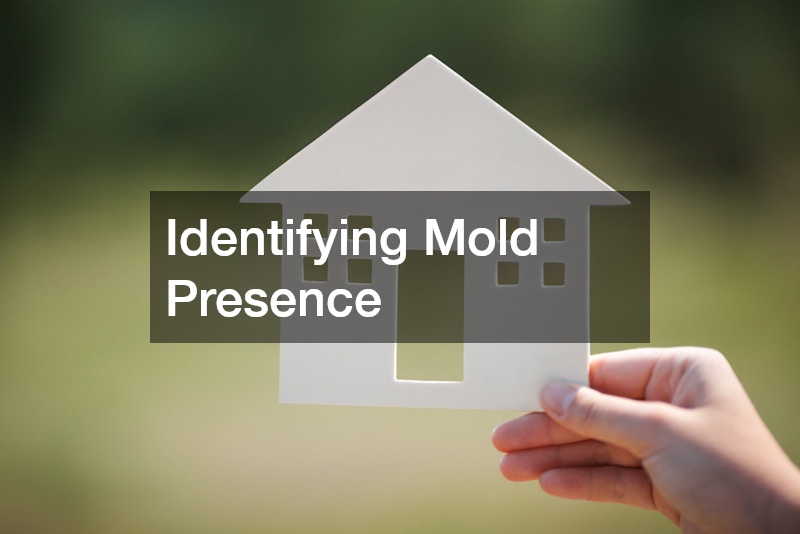
Mold remediation is a crucial process that addresses health and safety risks associated with mold presence in buildings. Understanding mold remediation can help homeowners and property managers take proactive steps to protect their investments and ensure a healthy environment. In Burlington Township, NJ, awareness of local guidelines and proper remediation strategies is particularly vital.
Identifying Mold Presence
The presence of mold in a home can sometimes be detected by musty odors or visible discoloration on walls and ceilings. Unexplained allergic reactions, such as persistent coughing or sneezing, may also signal mold growth. In Burlington Township, NJ, recognizing these symptoms early can prevent more extensive damage and costly repairs.
Homeowners should visually inspect areas prone to moisture, such as basements, bathrooms, and kitchens. Dark spots or fuzzy patches are clear indicators of mold infestations. Prompt detection and response are essential to minimize the adverse effects of mold on health and property.
Mold can thrive in areas with high humidity and poor ventilation, making it necessary to maintain optimal conditions within the home. In Burlington Township, where seasonal humidity can fluctuate, monitoring mold-prone areas regularly is highly recommended. Swift action can prevent mold from spreading and causing structural damage.
Mold Testing Methods
To accurately assess mold issues, several testing methods can be employed. Air sampling is a widely used technique that captures airborne mold spores for laboratory analysis. It helps in determining the concentration of mold present in indoor environments.
Surface sampling involves collecting mold from affected materials using swabs or tapes, which are then analyzed to identify mold species. This method is useful in understanding the extent and nature of mold contamination. In Burlington Township, NJ, professional mold testing services are readily available to assist homeowners.
Mold testing can also involve bulk sampling, where pieces of contaminated material are collected for a thorough examination. Each method serves a specific purpose, and a combination of tests often provides the most comprehensive results. Tailoring the testing approach to the property ensures effective mold remediation strategies.
Local Regulations and Guidelines
Burlington Township, NJ, has specific regulations and guidelines concerning mold growth and remediation. Understanding these rules is crucial for homeowners and property managers to comply with legal standards and ensure safe living conditions. The township provides resources and support for addressing mold-related issues efficiently.
Local guidelines often emphasize the importance of hiring licensed professionals for mold remediation. This ensures that appropriate safety measures and remediation techniques are employed. Adherence to these guidelines can significantly reduce health risks and liability concerns.
Residents are encouraged to report mold issues promptly and seek professional assessments to determine the proper course of action. Understanding and following local regulations can facilitate quick and effective mold remediation in Burlington Township, NJ. Compliance contributes to community health and environmental preservation.
What Does Mold Remediation in Burlington Township, NJ Involve?
Inspection and Assessment
The first step in mold remediation involves a thorough inspection and assessment by certified professionals. Inspectors evaluate moisture sources and the extent of mold contamination within the property. This detailed assessment enables the development of a tailored remediation plan to address specific needs.
Special equipment, such as moisture meters and infrared cameras, is often used to uncover hidden mold in structural components. Identifying all affected areas ensures that no mold is left untreated. In Burlington Township, NJ, engaging skilled inspectors familiar with local conditions is a wise decision for thorough evaluations.
Assessments usually include recommendations for remediation actions and preventive measures to avoid future mold growth. Clear documentation of findings and planned procedures aids in maintaining transparency with homeowners. Ensuring an accurate assessment is crucial for successful mold remediation and long-term maintenance of property value.
Containment and Removal
Once the assessment is complete, the next phase involves containing and removing the mold. Containment prevents the spread of mold spores to unaffected areas, using physical barriers like plastic sheeting or negative air chambers. Proper containment is essential to protect unaffected parts of the building and its occupants.
Removal typically entails discarding contaminated materials that cannot be salvaged, such as drywall or carpeting. Specialized cleaning agents and techniques are employed to eliminate mold from surfaces that can be cleaned and restored. In Burlington Township, NJ, professionals ensure the safe disposal of mold-infested materials according to local regulations.
Throughout the removal process, safety precautions are strictly followed to protect workers and residents. The use of personal protective equipment and adherence to safety protocols are imperative. Completing containment and removal effectively is vital for the success of mold remediation efforts.
Understanding mold remediation is vital for maintaining healthy and safe living spaces. Recognizing mold presence, adhering to local regulations, and employing effective remediation strategies are key aspects of dealing with mold issues in Burlington Township, NJ. Prioritizing these factors can significantly enhance property value and occupant well-being.
Mold remediation encompasses systematic steps from inspection to cleaning, requiring professional expertise for optimal results. Homeowners should remain vigilant about mold risks and take prompt action when necessary. By doing so, they can protect their investments and their health.
The significance of mold remediation cannot be understated, as it provides both immediate solutions and long-term benefits. Awareness and proactive measures ensure a safer, healthier environment for all residents. In Burlington Township, adhering to best practices in mold remediation fosters community resilience against mold-related challenges.
.
